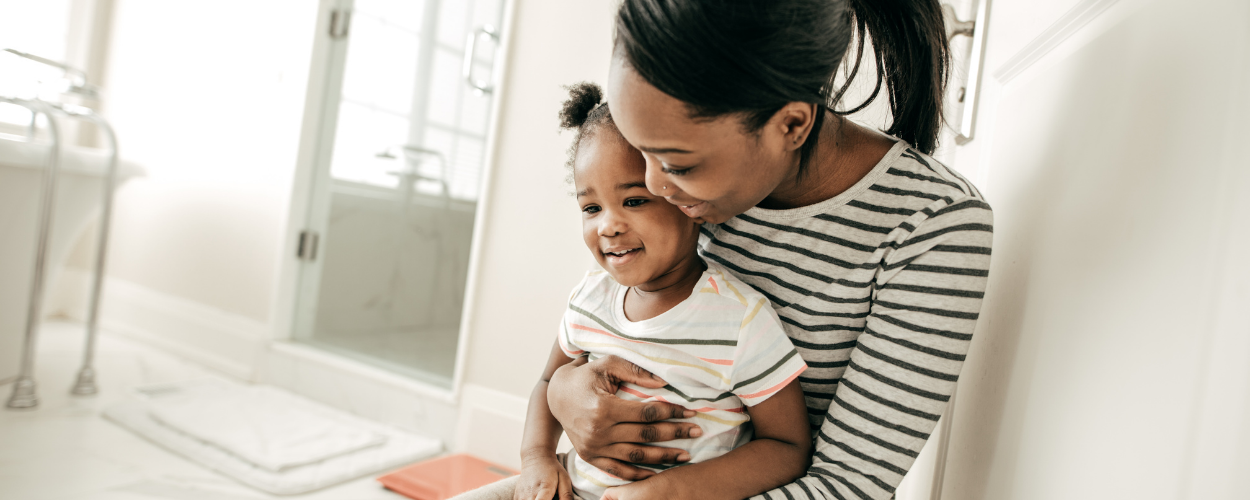In the past few years, more US states have pushed for abortion bans than at any other time in history. At the same time, millions of families struggle to provide the basic necessities, including diapers, for their children without any available government aid.
The merging of these two things raises the question: Does our government only care about our children until they are actually born?
Why resort to abortions?
Many families state that this inability to financially sustain their children and family is a major part of the reason they seek out abortions in the first place.
In fact, a 2005 study showed that 73% of women who had an abortion stated that their inability to provide for the baby, given their current financial situation, was a large contributing factor when deciding to abort. The number rises to 81% when you look at women below the federal poverty line.
These women don’t want to give birth to a child that they can not take care of financially, or they already have other children they are struggling to provide for. Another child would mean neglecting the others.
The Government & Diaper Assistance - Why is abortion banned?
With all of this data in hand, there are still far fewer discussions in government about what help needs to be provided to families AFTER the baby is born.
The focus has primarily resided on abortion bans/restrictions and pro-life agendas. So how many States will ban abortion? Between 2021 and 2022, 31 out of the 50 United States have introduced abortion bans. In 7 states, these bans have passed at least one legislative chamber and have already been enacted in 6 of those.
When it comes to diaper need, however, there is essentially no action at the federal level, aside from a small number of bills that have been proposed to help provide inventory to diaper banks.
Moreover, these diaper banks depend on volunteers and donations in order to operate. Their very limited budget was not enough in the past and is certainly not enough during the pandemic when diaper need has skyrocketed.
The True Impact of Diaper Need for Parents and Babies
On the surface, a diaper may not seem to be the answer to poverty for these families, but something so simple as having clean, available diapers for their little one could mean the difference between having a job or homelessness. Without something basic, like a diaper, many parents are unable to bring their children to a daycare service and, in turn, are unable to go to work.
This is not a deep or complex concept, but it is one that the government chooses to ignore. Government aid provides parents with food and health care support, but has deemed diapers non-health related and therefore, non-eligible for government aid including Medicaid or food stamps.
Parents without access or the means to provide clean dry diapers for their children often resort to other unsanitary “solutions”. Towels, newspapers, or plastic bags are some of the cleaner options that low-income families resort to.
Others will simply dump, dry, and re-use soiled diapers or leave diapers on their little one for far too long in an attempt to make their limited supply last. Here’s where the health aspect of diapers reveals itself.
A dirty diaper or an unsanitary alternative leads to several health issues for both baby and parents. Diaper rash, other dermatological issues, and of course urinary infections run rampant in these babies. A dry healthy baby is a happy baby, but with all of these medical and uncomfortable issues, these babies are miserable.
This, in turn, leads to stress, anxiety, and even depression for their caregivers. They feel unfit to care for their child, something no parent should ever feel in regards to diaper need.
Pro-life Laws vs. Fighting Poverty
For many years now, lawmakers have debated whether the answer to ending abortions comes down to more pro-life laws or by fighting poverty. The first issue with this thinking is that it is not a matter of one versus the other, but a matter of solving both, as one problem. With pro-life laws needs to come more government aid for the baby once it is born, otherwise, parents will resort to abortion care or fall deeper into poverty.
Abortion bans, like those in Texas, and now Idaho, Missouri, Oklahoma, Wyoming, and most likely more states to come, have removed or made this alternative very difficult for parents that are unable to care for their unborn child.
These restrictions mean that these parents will be forced to try to obtain an abortion out of state, somewhere where the restrictions are less strict. This means more money and more time spent out of work.
An unwanted/unplanned pregnancy, the inability to end it due to abortion bans, and the lack of sufficient government aid after the birth, nearly ensured that these women, their partners and their children end up in poverty.
Children who live in poverty will inevitably be more unhealthy, and remain uneducated, therefore, remaining in poverty into adulthood. The cycle only continues from there.
So how can we help?
Here are some of the small ways we all can do our part in the pursuit to end diaper need in America:
- Donate or volunteer at your local diaper bank. Diaper banks are one of the only sources that aid families with Diaper Need. You can find your local diaper bank here.
- Contact your state and local officials and ask what they are doing to bring relief to families in your area that are experiencing diaper need.
- Spread the word! Most people have never even heard the term Diaper Need. Bring awareness to your friends and family.
- Buy diapers that give back. Believe Diapers donates a diaper to a U.S. family in need for every one you buy. You can learn more about our initiative here.



